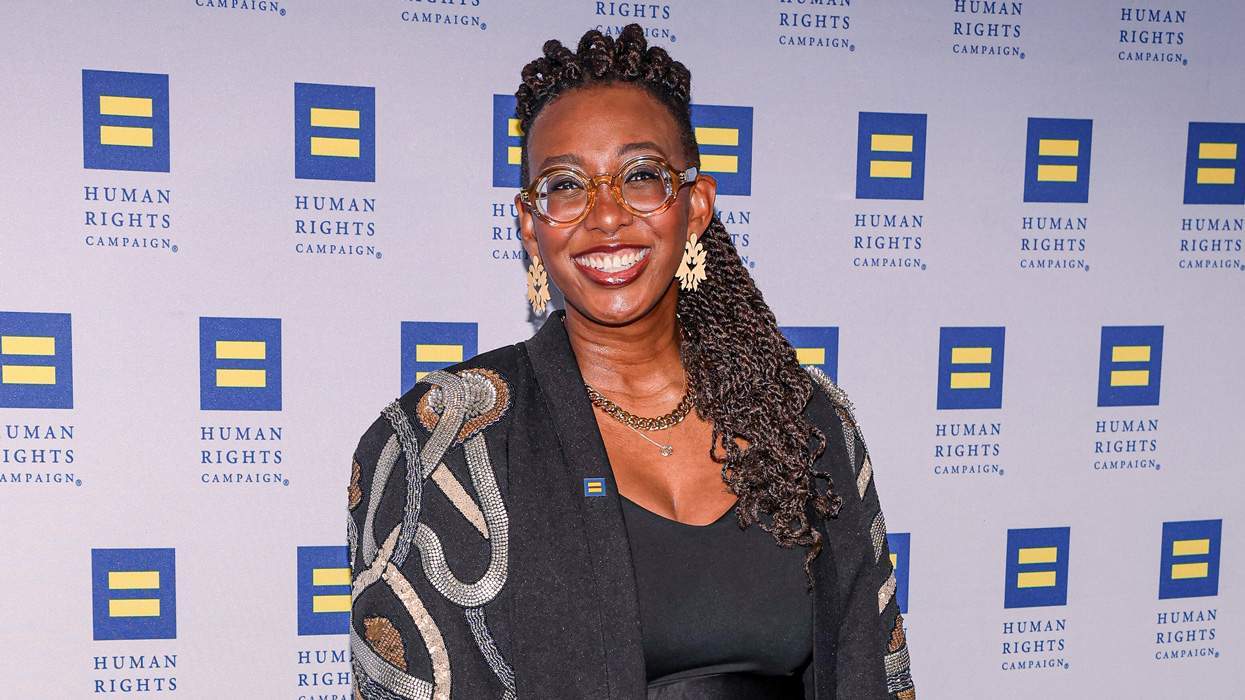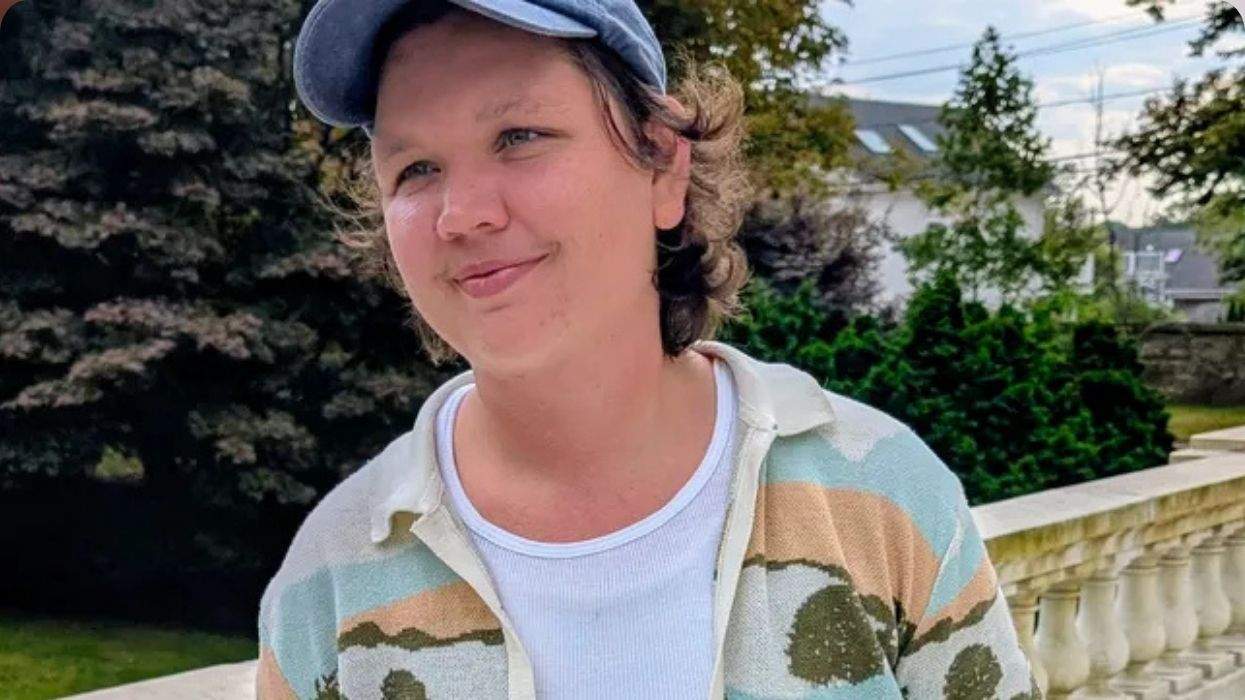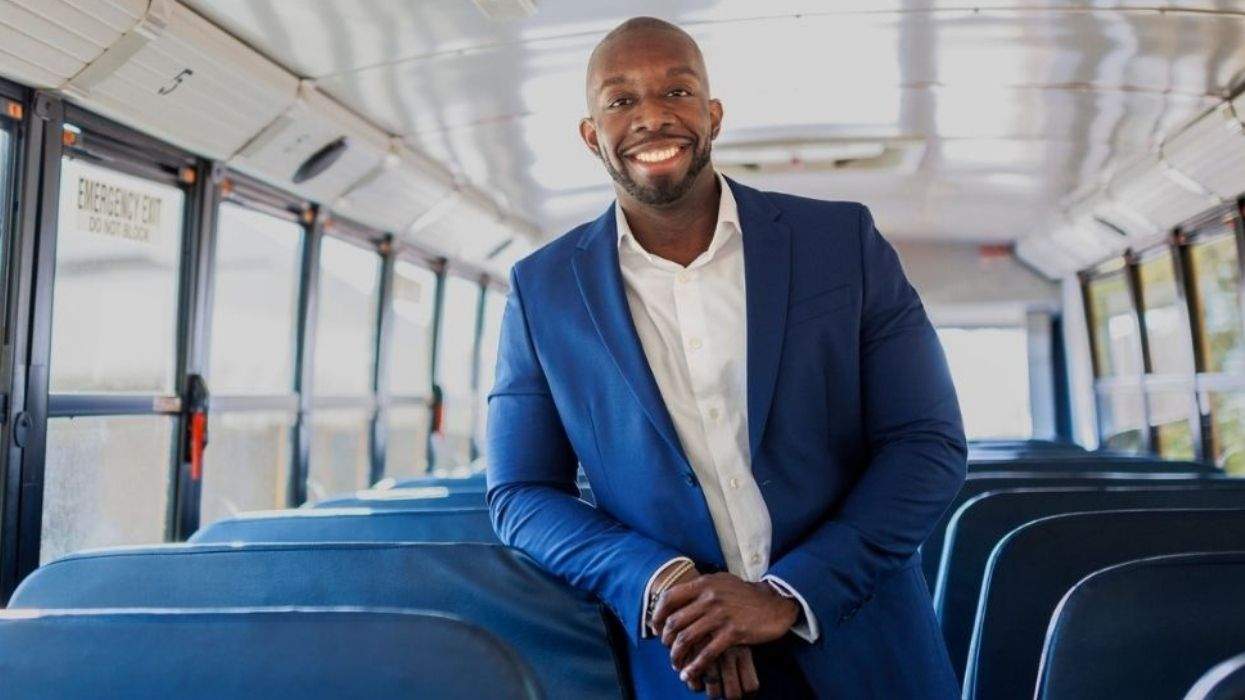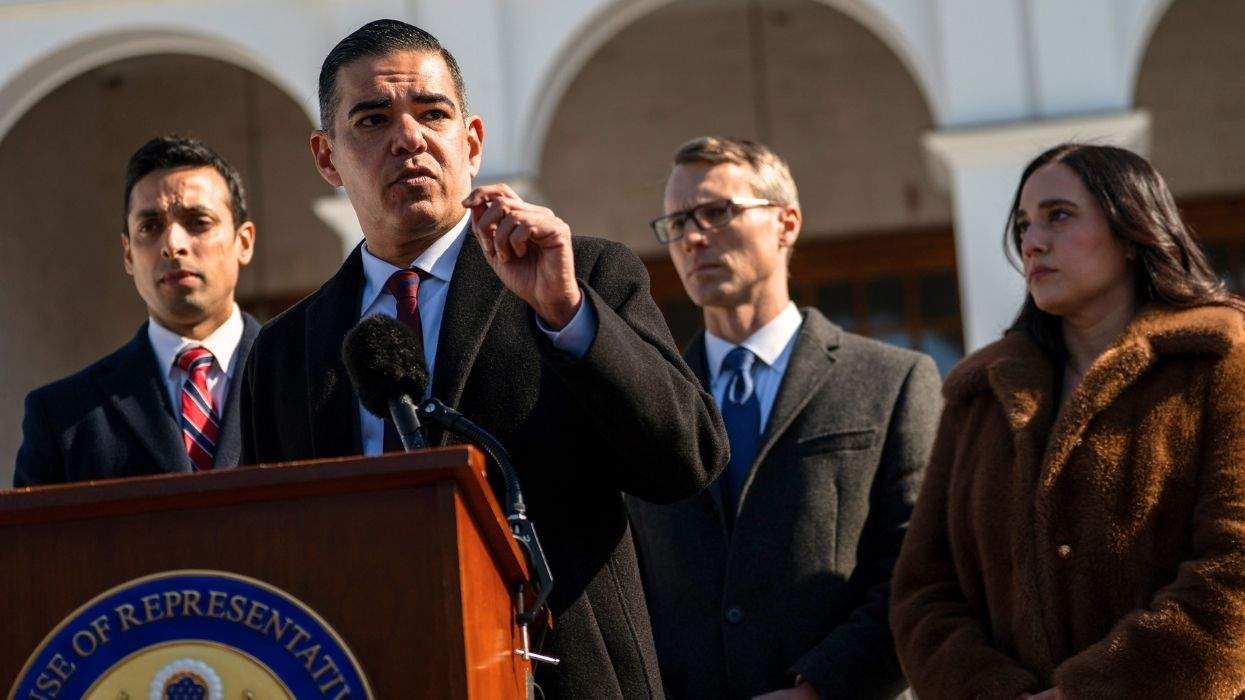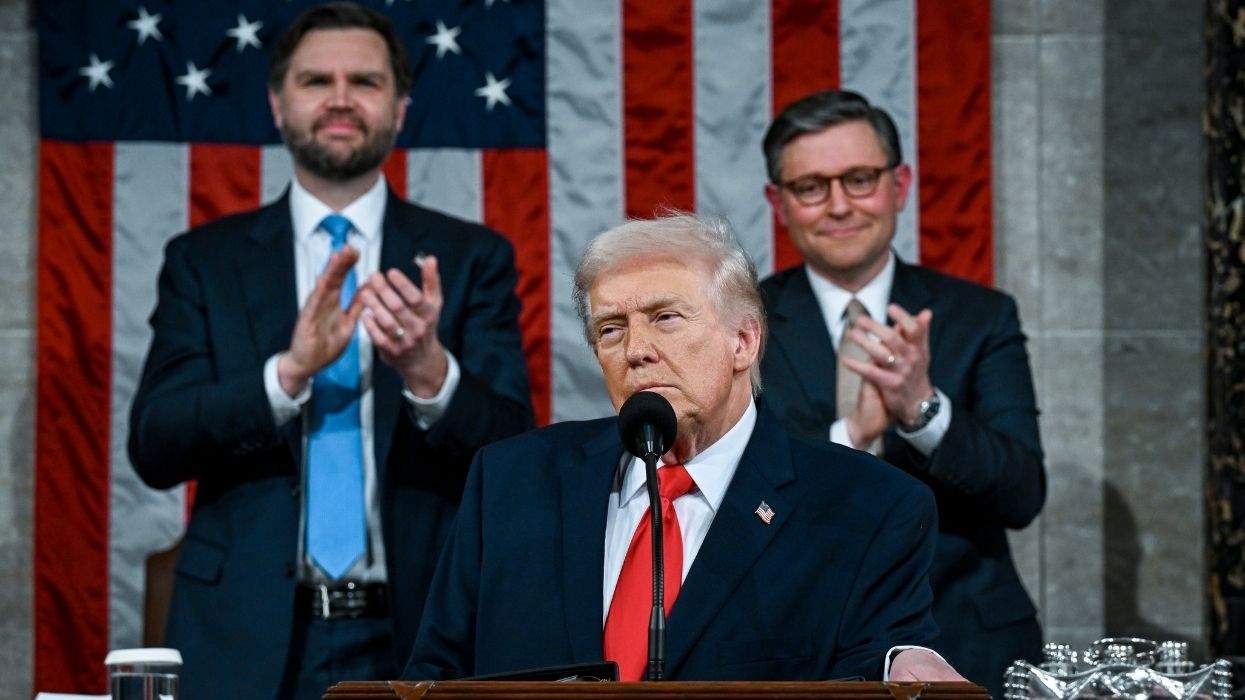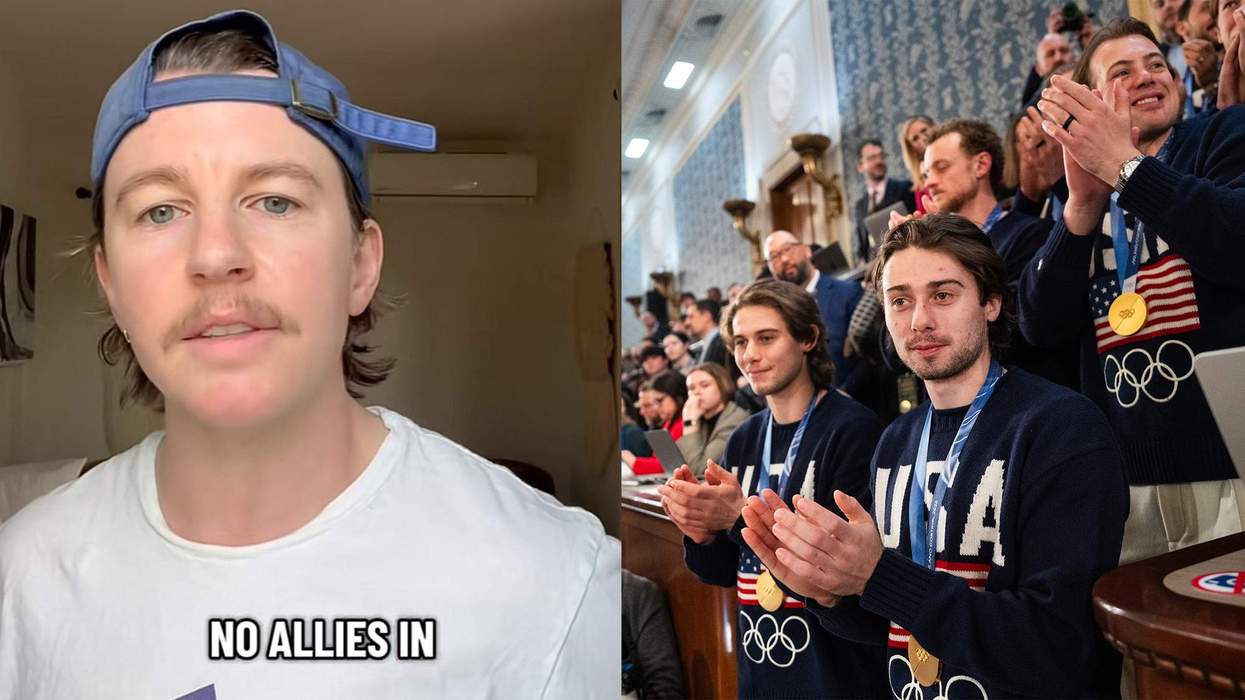In May 2006, Donald Hitchcock was fired by the Democratic National Committee as director of its Gay and Lesbian Leadership Council--less than a week after his partner, fellow Washington politico Paul Yandura, e-mailed high-level Democratic donors and suggested they withhold financial support from the DNC in protest of the group's apparent neglect of antigay ballot initiatives. Hitchcock, whose role was to raise funds from gay donors, claimed his sudden dismissal was retaliatory, but the DNC denied the charge. Indeed, in an Advocate interview at the time, Dean said the accusation was "absolutely false," adding that he would not discuss Hitchcock's "personnel records." (To read that interview, click here.)
This May, after settlement negotiations failed, Hitchcock filed a lawsuit in District of Columbia superior court against the DNC, Dean, treasurer Andy Tobias (who is gay), and deputy finance director Julie Tagen, alleging retaliation, defamation, and discrimination on the basis of sexual orientation. Again, the DNC denied the allegations.
Hitchcock hasn't spoken to the media about his firing or the lawsuit, but in this exclusive interview he finally breaks his silence, maintaining the DNC ousted him unfairly and charging that other perceived wave-makers at the group faced similar strong-arm tactics. And in a bittersweet twist, he reveals that his replacement at the leadership council, Brian Bond, sought strategy advice from him after he was dismissed.
The Advocate:Let's start at the beginning: Did you have any knowledge of Paul's letter before he sent it?Hitchcock: No, I did not.
If you had, would you have tried to stop him from sending it? Well, first of all, when it happened I was in New Orleans at the Democratic National Committee meeting, so he was doing it on his own. And Paul has his own credentials to criticize the party. Paul worked in the White House [as an aide to the Clinton administration], he was the executive director of the Stonewall Democrats, and he was actually hired by Andy Tobias as the first GLLC director for the DNC. And anyone who knows Paul knows that me wanting to stop him wouldn't stop him. He's his own political entity, and he's been in politics in D.C. for 13 years.
And within days of Paul's letter you were asked to leave the DNC. That's right. I was asked to leave by Julie Tagen. She pulled me aside as a friend and asked me to resign. What I found out [later] was that there was a strategy to ask me to resign. It wasn't just a friend talking to a friend; it was an effort and a discussion that had occurred with some other DNC employees. She had already asked me to keep Paul silent. And because I couldn't keep Paul silent, I feel I was asked to resign.
The DNC has said that it was your poor job performance, not retaliation, that lead to your dismissal. The derogatory comments were to cover up what the DNC had done to me and to try to shame me for something that Paul said. They continually attacked me, thinking I wouldn't defend myself. They had to cover their tracks to make it look like they weren't punishing me for somebody criticizing the party.
Was there any indications up to that point that your superiors were unhappy with your job performance? No, there was no problem with that. I didn't have any negative performance reviews. I've never been written up, and I was never reprimanded. So that all came out of the blue.
What did you think when you read Howard Dean's comments inThe Advocatelast year referring to your "personnel records"? It didn't surprise me, because there was already that kind of talking point coming out of the DNC. The fund-raisers had been doing that for some time. Ultimately they're just trying to raise money from our community. It was actually a sad, shameful thing for Governor Dean to say, because there was no poor job performance review or any sort of criticism of my performance while I was at the DNC.
What was the most shocking aspect of how things went down? That the fund-raisers in the Democratic Party feel that they can't be held accountable for defaming somebody, and they're exempt from consequences when they go out and slander people that used to work for the Democratic Party. This lawsuit's about holding them accountable and holding the Democratic Party to our values.
Have things changed at all for the better at the DNC since you've left? I don't think so. What a lot of people don't know is that Brian [Bond] asked to meet with me a few months ago to discuss the strategy of what's happening within the DNC. Brian even called Paul and asked if he'd keep up the outside pressure during the delegate selections rule fight, because the senior staff was working against the gay community's desires. Brian specifically asked that Paul keep up the pressure so that we didn't get screwed in the process. He will obviously deny this, because if he doesn't, he'll be fired. But during the court proceedings everyone will be under oath--including myself--and I look forward to shining some sun on this.
Joseph Sandler, who's representing the defendants in your suit, has said that the DNC won't respond publicly to your charges, and has asked people to keep in mind that "everything you'll see may well be one-sided." How do you respond to that? One thing we should point out is that it's been one-sided from them for a long time. Now the community is actually seeing two sides to this issue. I've been silent over the past year around my firing. I've been talking about policy issues of substance. Unfortunately, the DNC believed I wouldn't protect myself and they could act with reckless abandon in order to keep money flowing. I've always held the Democratic party to a higher ideal. I walked into the DNC building expecting more out of the Democratic Party. The easy thing for me now would be to walk away and be quiet, because we've been meeting people who have done just that. As we're telling our story, they're saying, "That happened to me [too]"--not with regard to LGBT discrimination, but personal attacks and defamation against anyone who stands up to the party.
All under the Dean regime? That is under the Dean regime. Several people have approached us where this has happened to them, and we're referring them to our lawyers.
Do you worry that this could affect fund-raising for the DNC going into 2008, especially given that the presidential campaign has already begun? Well, I'm a loyal Democrat, and I want to help the Democratic Party. I think this lawsuit can help the Democratic Party get better on our issues. Honest conversation can only move us forward. The DNC could have settled this privately. I approached them at least five times before going public, but the DNC lawyers or senior staff refused to settle out of court.
Can you talk at all about the settlement you tried to reach? I don't want to go into details, but the settlement was really not about money. The settlement was clearing my name and setting the record straight about my job performance at the DNC and also asking DNC agents to stop defaming me. There were no hard lines in the sand. It was just about coming to the table and having a responsible conversation and being honest about what's happened so we could all move forward. But it's obviously the stubbornness and arrogance of their senior staff that prevents them from coming to the table. For them it's all about money, and that means fighting this with a P.R. spin campaign and trying to keep this from hurting their fund-raising. For me, it's about doing the right thing, having the right values, and expecting our party to have the values that we all espouse.
How has this experience affected your career? When this happened to me I kind of reevaluated where I was at. It's hard to say, because the DNC fund-raisers have spoken to a lot of influential people about my job performance. I actually am very interested in the Democratic movement and staying in the LGBT movement, and I do not want to be criticized when I speak on policy issues moving forward--and this is what has been happening. I'm back in school getting a master's in public policy, but I'm not going anywhere.

